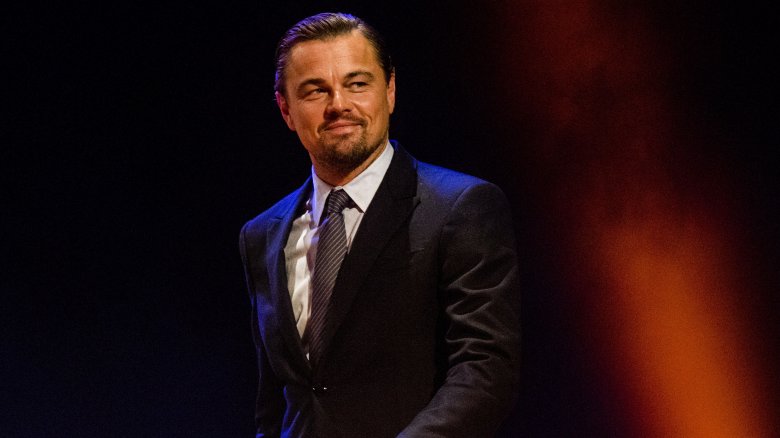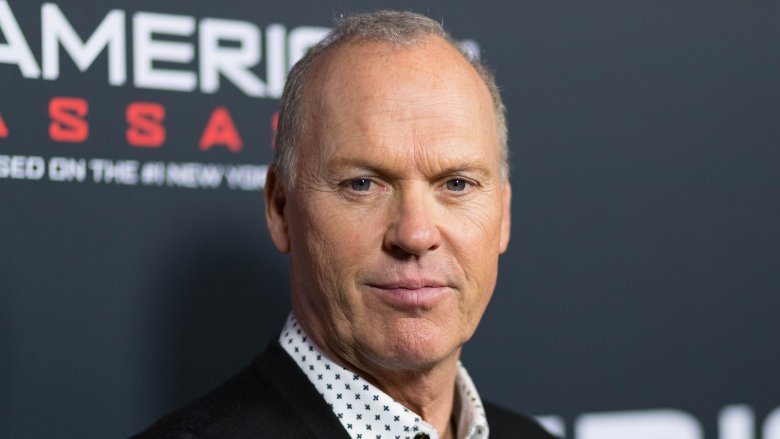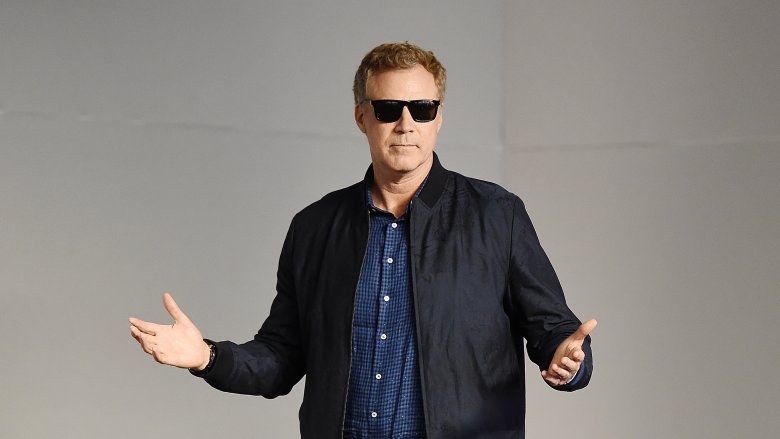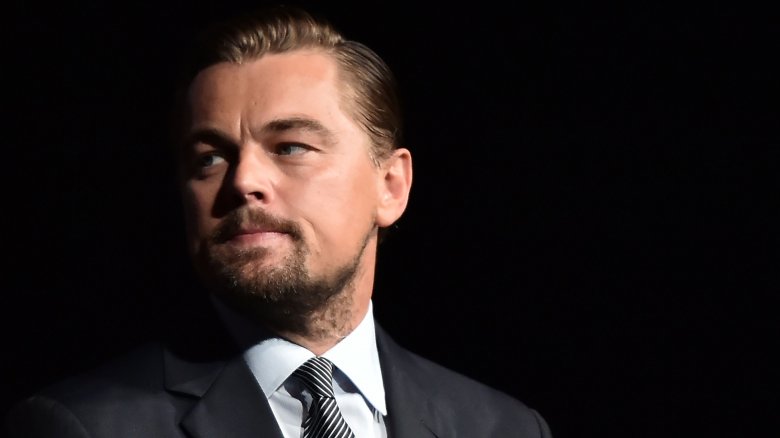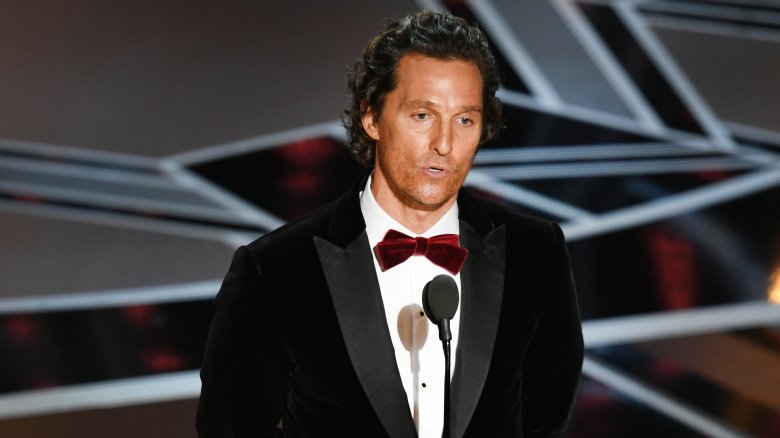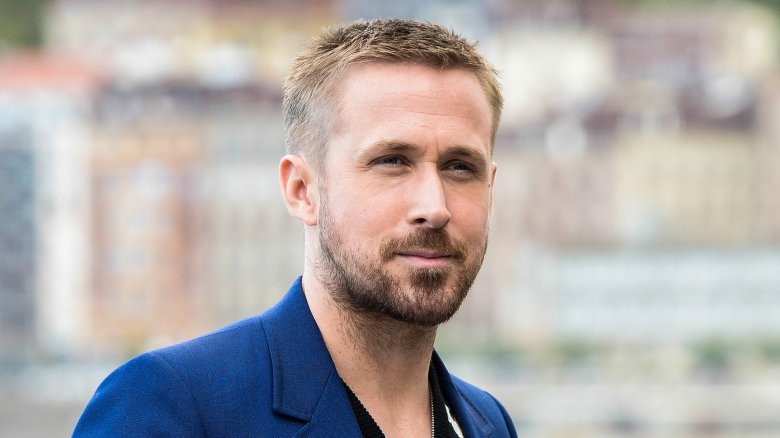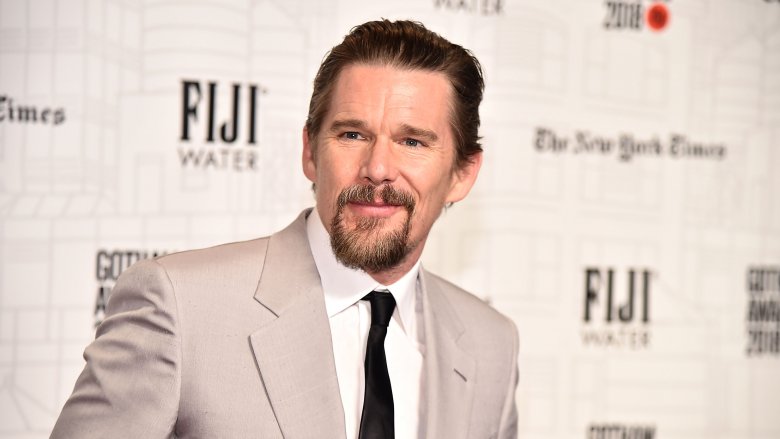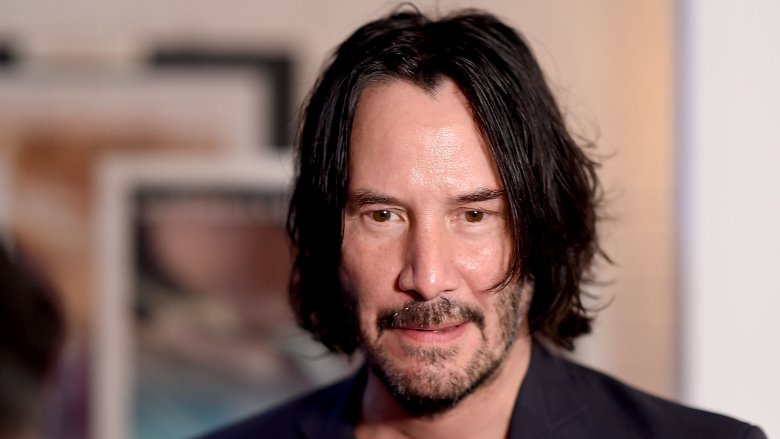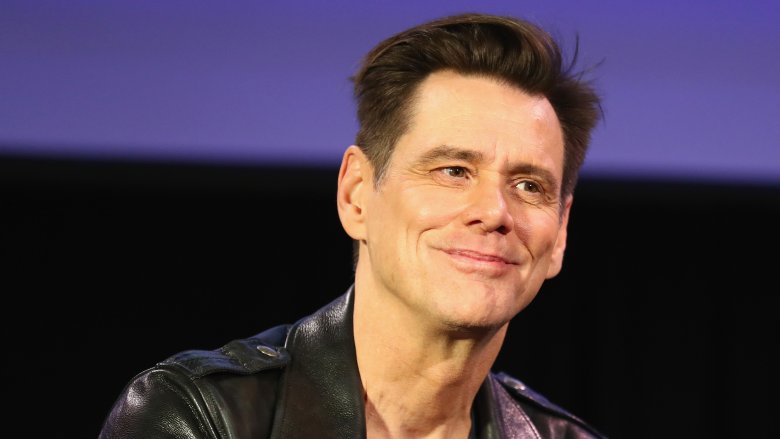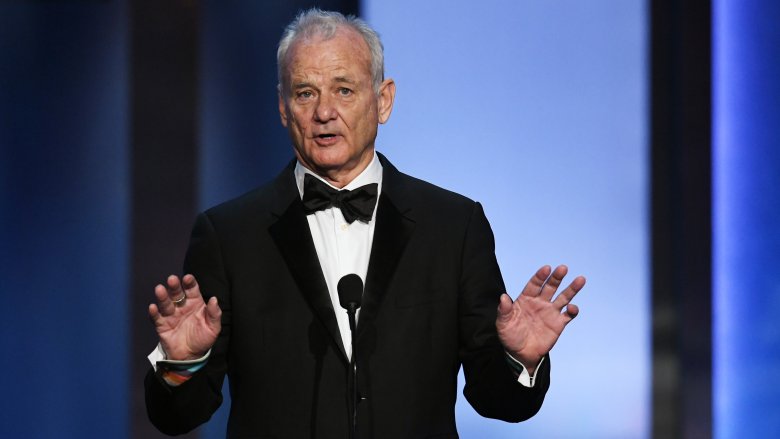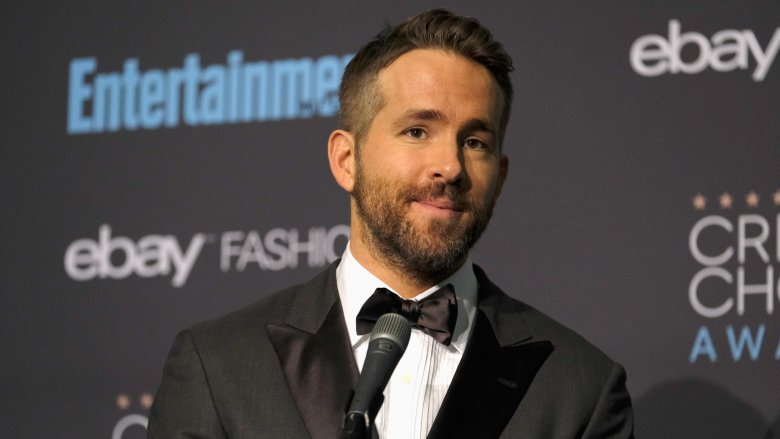The Real Reason These Actors Gave Up Huge Paychecks
Aside from gaining millions of fans, traveling the world for press tours, rubbing elbows with some of the greatest creative minds of our time, and having the kind of job that doesn't make you dread Mondays, the hefty paychecks seem like one of the biggest perks of being a famous actor. After all, who wouldn't want to pocket a few million dollars every time they appeared in a film? It's no wonder so many people dream about making it in Hollywood and making bank for starring in movies and TV shows — and that's exactly why the industry is so competitive. Only the best of the best are going to be able to command that kind of money.
But there are plenty of actors who aren't solely in it for the financial rewards. Some of them already have more money than they know what to do with, and some of them simply prioritize artistic freedom over cold, hard cash. In fact, some of the world's most highly paid stars have accepted serious pay cuts for interesting movies, even pouring their own money into film budgets to get projects off the ground. It happens more often than you might think. Here's why these talented A-listers turned down massive paychecks — and how it actually helped their careers in the long run.
Michael Keaton
After starring in Batman and Batman Returns, Michael Keaton was worth millions to studios — in fact, he was offered a cool $15 million to star in the next installment of the beloved franchise, Batman Forever. But there was a catch: Tim Burton, who directed the first Batman film, had moved on to other projects, and Joel Schumacher was taking over. Plus, Warner Bros. wanted to take the franchise in a new direction. Since Batman Returns had failed to capture the same profits as Batman, they were pushing for a more family-friendly script to draw in bigger audiences.
Unfortunately, Keaton wasn't persuaded. He didn't like the script, and after a series of meetings with the studio, he decided to turn down the chance to reprise his role. The part went to Val Kilmer instead, and while the film did rake in serious profits, it was generally panned by critics. In the following year, Keaton went on to star in Much Ado About Nothing and My Life, but decades later, he got back to his roots in the superhero genre, appearing as the Vulture in Spider-Man: Homecoming.
Will Ferrell
The hilarious and heartwarming Christmas movie Elf has become a holiday classic — in fact, it was so popular that it even inspired a Broadway musical of the same name. Because of the success of the film, director Jon Favreau wanted to capitalize on the hype and start working on a sequel. Will Ferrell, who starred as the lovable and clueless Buddy the Elf, was offered $29 million to star in the proposed sequel, tentatively titled Elf 2: Buddy Saves Christmas.
But Ferrell wasn't persuaded by those dollar signs. In fact, he commented that the offer was "insane" for a guy whose only job was to run around in tights and tell jokes. He said that he wouldn't agree to a sequel, and that it wasn't exactly a tough call — he knew nothing could match the magic of the original. Ferrell also noted that if he went ahead with a sequel he didn't believe in, and it bombed at the box office, critics would rightfully call him out for doing it because of the paycheck, and he didn't want that kind of reputation. Instead, he signed on to Anchorman, which became a big hit.
Leonardo DiCaprio
After the massive international success of Titanic in 1997, Leonardo DiCaprio was one of the biggest stars on the planet. With a huge fan base around the world and countless directors interested in working with him, he could take his career in any direction he chose. When Lionsgate offered him $20 million to take on the role of serial killer Patrick Bateman in American Psycho, studio heads were actually surprised when he indicated his interest — it was safe to say that Bateman's character had nothing in common with Leo's previous roles.
The only problem? The studio didn't consult with director Mary Harron before getting in touch with DiCaprio, and Harron was dead set on having Christian Bale play Bateman. Harron was temporarily booted from the project before filming began, and Oliver Stone was brought in to direct. But when Stone and DiCaprio consistently disagreed on key creative decisions, DiCaprio decided to step away from American Psycho and work with Danny Boyle on The Beach instead. Harron came back to the director's chair, and she brought her original vision to life with Bale starring as Bateman.
Matthew McConaughey
Matthew McConaughey's career hasn't exactly followed a predictable path. From comedy to horror to drama, he's done it all. In the early 2000s, he starred in several rom-coms, including The Wedding Planner, How to Lose a Guy in 10 Days, and Failure to Launch. But after a string of box office flops, like Fool's Gold and Ghosts of Girlfriends Past, he realized that he wanted to start fresh. He decided to take some time off and carefully consider what kinds of films he really wanted to work on. During his self-imposed sabbatical, he was offered $15 million to star in Magnum, PI, and although he might have jumped at this offer in the past, he turned it down.
Shortly after refusing that paycheck, McConaughey became a father and wondered if he should have taken the money, but becoming a parent also made him see how important it was to take roles he was truly passionate about. He ended up signing on to star in Dallas Buyer's Club as AIDS patient Ron Woodroof for $200,000 instead, and his performance earned him an Academy Award for Best Actor.
Ryan Gosling
After starring as Noah in the romantic drama The Notebook, Ryan Gosling had a flood of offers for exciting new roles — and big paychecks to match. Sure, he could have stuck with similar movies and took home millions, but he decided to accept a salary of $1,000 per week to star in the indie Half Nelson. Gosling took on the role of middle school history teacher Dan Dunne, who bonds with one of his students over their mutual struggles with addiction. The film opened to positive critical reviews, and Gosling was nominated for the Academy Award for Best Actor for his performance.
Why did Gosling make the surprising choice to star in Half Nelson instead of going with a film that would have earned him a better paycheck? He's said the script stuck out to him because all of the characters were so complex, and he embraced the challenge of playing Dan, even volunteering to live in Brooklyn for several weeks before shooting to fully understand the film's setting.
Ethan Hawke
Although the Purge franchise has brought in hefty profits at this point, none of the cast and crew knew how successful the movies would be when they signed on to film the original Purge in 2013. In fact, Ethan Hawke, who starred in the first Purge, says he took "almost no money up front" when he agreed to work on the movie. The Purge was a microbudget project, and in order to entice bigger names to sign on, actors were offered a cut of the profits after the film debuted at the box office. Needless to say, Hawke ended up taking home a solid payout when the film eventually grossed over $89 million worldwide.
During filming, Hawke said there were essentially no perks for the cast — he didn't even have a trailer, and he slept at producer Jason Blum's house during shooting. It's clear that everyone involved was motivated by their enthusiasm for the script, not the potential payout, which makes it that much sweeter that their leap of faith paid off.
Keanu Reeves
Keanu Reeves is known for his low-maintenance, down-to-earth perspective compared to the Hollywood mainstream. In 2003, he told Hello magazine, "Money is the last thing I think about. I could live on what I have already made for the next few centuries." And it's obvious that Reeves meant every word — he's known for taking pay cuts and investing his own money into films to give the rest of the cast and crew a financial boost. After signing on to Devil's Advocate in 1997, he docked his own paycheck so the studio could afford Al Pacino, and in 2000, he took a smaller salary for The Replacements to make room in the budget for Gene Hackman. While starring in The Matrix films, he also doled out bonuses to the special effects and costume teams.
Reeves also has a reputation for being a philanthropist. In addition to helping out his friends in the entertainment industry, he runs an anonymous cancer charity.
Jim Carrey
In 1994, Jim Carrey was one of the most expensive stars in Hollywood. He had just commanded a record paycheck of $20 million for the comedy Cable Guy, and went on to score roles in big hits like Liar, Liar, The Truman Show, and How the Grinch Stole Christmas. But in the early 2000s, Carrey's career was in a bit of a slump thanks to mixed critical reviews of his films Fun With Dick and Jane and The Number 23, and he'd also gained a reputation of being somewhat difficult to work with. So instead of gunning for a big paycheck on his next project, Yes Man, he negotiated a deal: he'd take nothing up front, and would instead take a portion of the profits after the film's budget and marketing costs were accounted for. Considering the track record of Carrey's previous few films, the deal was a gamble, but it paid off: Yes Man made $223 million worldwide, and its star said "yes" to a windfall with an impressive number of zeroes.
Bill Murray
Bill Murray is known throughout in Hollywood for his elusive nature. He can only be reached through a mysterious 1-800 number, making it difficult to track him down and convince him to sign on to a film. But in 1998, writer-director Wes Anderson was determined to work with Murray on his latest project, the dark comedy Rushmore. Against all odds, he managed to get a hold of his would-be star, who'd long since made name for himself with hits like Caddyshack, Ghostbusters, and Groundhog Day. Anderson had written the role of Herman Blume with Murray in mind, and he desperately wanted Murray to appear in his film.
Murray agreed to the role for $9,000, and even offered $25,000 out of his own money to help pull off a particular shot when the studio balked at extra funding. He ended up being nominated for a Golden Globe for his work in Rushmore, starting a fruitful creative partnership that has grown to include seven films over two decades (and counting).
Ryan Reynolds
Ryan Reynolds may have been offered a base salary of $2 million for the first Deadpool film, but that was chump change compared to what many other big names were getting for superhero blockbusters. Reynolds wasn't happy with the way the character of Deadpool was portrayed in X-Men Origins: Wolverine, and he wanted to give him a second chance, so to speak — but he also knew that Fox was taking a risk on the R-rated script. When the studio made cuts to the budget, he paid some of the screenwriters out of his own pocket to keep the project moving forward.
It turns out that Reynolds' instincts were correct: fans loved this new version of Deadpool, and the film banked over $783 million at the worldwide box office. In May 2018, Reynolds starred in the sequel, Deadpool 2, and thanks in part to the success of the franchise, he's cemented his spot on the list of Hollywood's highest paid actors.
